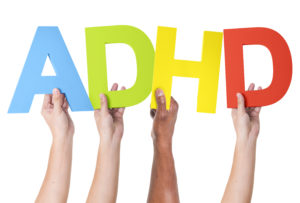
What Are the Myths and Facts About ADHD?
There continue to be many myths about ADHD…
Myth #1: ADHD is not a result of poor parenting. Fact: It is a medical neurobiological disorder.
There is a lot of research involving MRI brain scans which have concluded that children with ADHD have small but significant reductions in total brain volume and in the various regions of the brain that are involved in the regulation of attention and impulsivity (the frontal lobe).
It is an illness or deficit of the nervous system most often due to genetic or biological factors. Family, twin and adoption studies have found that heredity is the most common cause of ADHD. Medical research has shown that some dopamine genes have been found to be associated with ADHD. If a child has ADHD there is five times more likelihood that another family member will also have the disorder. While ADHD symptoms may be caused by injury to the brain, or exposure to alcohol, nicotine or lead in the developing brain, this is not the cause in the vast majority of children with ADHD.
~ Center for awareness for ADHD Awareness, Canada
There are three types of evidence-based treatment for ADHD:
1) Medication – such as stimulants (Ritalin) or an amphetamine (Adderall)
2) Behaviour Therapy
3) Medication + Behaviour Therapy
The book, Organizational Skills Training for Children with ADHD is an empirically validated approach for help with executive functioning skills which tend to be weaker in children with ADHD. I also recommend the book, Smart but Scattered. Fidgets and “wobble cushions” are also really good for self-regulation and you can find some of my recommendations on my resources page, including a new and popular fidget cube (different things to click and turn on each side of this mini cube).

Six Areas of Executive Functioning that Are Often Impaired Due to ADHD
(from the extensive research of Dr. Thomas Brown)
- Activation = organization, estimating time, prioritizing tasks
- Focus = sustaining focus, shifting focus from one task to another
- Effort = processing speed, sustaining effort over the long term (Ie. big projects)
- Emotion = managing frustration and tempering emotions
- Memory = recall and working memory (being able to hold on to a few pieces of information all at once)
- Action = regulation one’s actions (impulsivity, pace, matching one’s actions to the environmental context)
ADHD vs ADD
ADD is now an outdated term but is still often heard. Nowadays, ADHD is segmented into three different types:
ADHD – predominantly hyperactive or impulsive type
ADHD – predominantly inattentive type
ADHD – combined type (hyperactive, impulsive and inattentive)
More ADHD Myths and Facts…
Can someone outgrow ADHD?
Yes, as the prefrontal cortex (the “wise leader” part of the brain matures and becomes an adult brain), ADHD symptoms can decrease. Many medical professionals estimate that 1/3 of children and teens who met criteria for ADHD, no longer meet criteria in adulthood. For some other people, they may still have ADHD but the symptoms become milder.
Does Diagnosing = Labelling?
Unfortunately, this is still a big myth that is being spread…
The truth is that being more informed about your child’s brain and how your child experiences his/her environment sets you up to be the most effective parent you can be! Your child can then be truly understood and helped in the areas where he/she needs help.
Receiving a diagnosis does not change who your child is. Your child is who your child is.
However, undergoing a psycho-educational assessment, does take the guess work out of the equation. Now you can have accurate data to support your child and target areas which may need remediation/intervention, instead of guessing the best ways to help. The earlier you become informed and target intervention, the more progress your child will make.
Is getting your child’s eyes tested a matter of labelling your child?
If you discover that your child needs glasses, wouldn’t you be thankful that you had your child’s eyes tested and now know how to support them?
This is the same with our child’s mental health. We are not labelling them, we are gaining a deeper understanding so we can be informed. (For further reading: Why Does It Seem So Many Children Have A Diagnosis These Days?)
When we take them for an assessment to figure out their brain’s learning style, we are acting out of the very best interest for our child.
The assessment is your private document and you choose how you share that information. I always recommend sharing the information with your child’s school but it is ultimately your choice.
Once your child is old enough, it also very important for him/her to understand how his/her brain works so he/she doesn’t develop low self-esteem from the frustration of not being able to perform in the same way as the majority of other kids.
Last year I was an external advisor for a grade nine student at IPS (Island Pacific School) who chose ADHD as the topic for his year long masterworks project. To view his presentation on Youtube, you can find it on my Facebook page here. He shared his personal perspective on what it is like to have ADHD, predominantly inattentive type, and what strategies have helped him. By understanding how his brain works, he is able to advocate for himself with his teachers and understand that his struggles are not his fault, they are neurological. He knows the strategies that work best for him and his learning style.
(ADHD can occur with other mental health conditions such as Autism, Anxiety, Learning Disabilities etc.)
How Has ADHD Medication Become A “Study Drug”?
Many high-school and college/university students have discovered Adderall – an amphetamine used in the treatment of some ADHD. They have realized that it helps them to stay awake longer, and therefore study longer, and be more focussed. In today’s competitive culture to gain acceptance into top universities, this drug has become very popular.
Unfortunately, these students have the false belief that if it’s an ADHD drug it must be safe for anyone to take.
This is not true.
Many students with an Adderall or other ADHD prescription believe that distributing the drug is legal and a good way to make money. However, these drugs are Schedule II drugs, meaning the Drug Enforcement Agency has labelled it highly addictive. The minimum sentence for distributing a Schedule II drug like Adderall is five years in prison. Very few students are aware of this and it is not commonly enforced.
Also, Adderall can be fatal for people with heart conditions. Students need to realize how dangerous it is to be distributing doctor monitored prescription medication to other students.
I have read about the phenomenon of “Addy” being sold and used by students as a “study drug” in excellent books such as How to Raise an Adult: Break Free of the Overparenting Trap and Prepare Your Kid for Success.
I have also heard about the illegal selling and using of Adderall as a study drug from many parents in my counselling sessions. Ask your teen if they know of people selling and buying Adderall…
Children are usually diagnosed for ADHD between the ages of 6yrs.-12yrs (although Autism can be diagnosed much younger, which is very beneficial for treatment). Between 3-5% of children in Canada are diagnosed with one of the three types of ADHD with the combined type being the most prevalent.
When we fully understand how our child experiences the world and how his/her brain works we can be more compassionate, and know the best ways to support our child.
Wishing you and your family a wonderful spring break,
Warmly,

PS. Canyon Height Elementary PAC are hosting me and inviting all parents from all schools to a presentation on Understanding Anxiety and Anxiety Management Strategies. This event will take place on April 6th from 7-8pm and you can reserve your free ticket on EventBrite here.
PPS. Registration for my next round of “Brain Science” groups to teach children ages 7-9yrs. and 10-12 yrs. about anxiety and anxiety management strategies is open. The 7-9 year old group is sold out but there are still spaces in the 10-12 yrs. group. You can register online here and click on “upcoming events/groups” and scroll down.
PPPS. The Amazon links to recommended books are affiliate links which means you don’t pay a penny more, but if you buy through my links I will receive a tiny commission which goes toward the running of this website, so thank you in advance for your support.
**If you enjoyed this article about ADHD Myths and Facts, please forward to your friends and family and share your “like” on my Facebook page, Instagram or Twitter. Thank you – I appreciate your support.
Want to Connect?
Subscribe now to receive free weekly parenting tips and inspiration.






